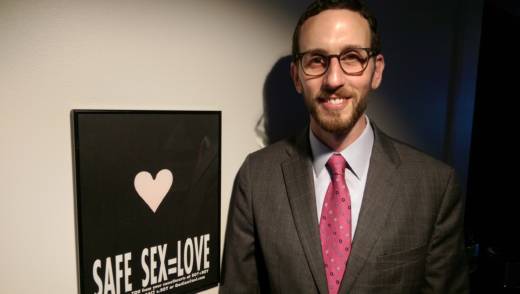State Sen. Scott Wiener (D-San Francisco) introduced a bill Monday to repeal California laws he says unfairly target people with HIV.
Under current California law it is a crime for someone with HIV to donate blood or to have unprotected sex with intent to transmit the virus. Existing laws also add extra jail time to sentences for rape or prostitution if the accused knew they were HIV-positive.
Most of these laws were written before there were treatment options for AIDS. Now a person with HIV can live a long life and reduce the risk of transmission to almost zero.
San Francisco Assemblyman David Chiu, who co-authored SB 239, says that he experienced firsthand as a prosecutor the negative consequences of current laws. He said they "criminalize and stigmatize people with HIV," and encourage them to avoid cooperating with the authorities. Wiener agreed with Chiu.
"Let's say you're in an abusive relationship. Your partner can use your HIV-positive status against you by threatening to report you to the police," Wiener said.
